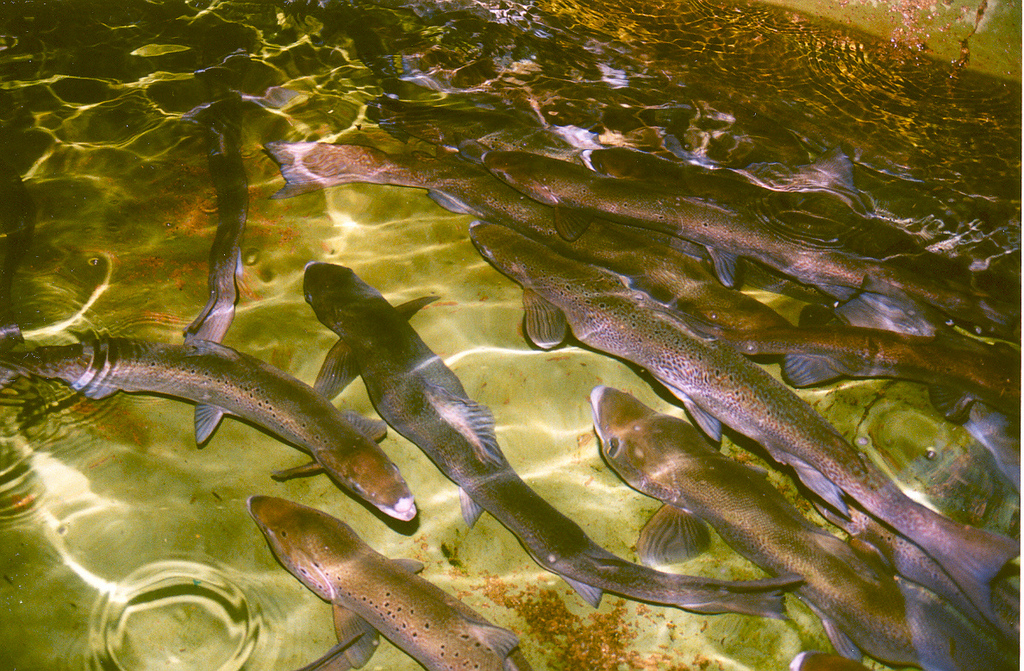
Genetically Engineered Salmon Approved for Consumption
Federal regulators on Thursday approved a genetically engineered salmon as fit for consumption, clearing the way for the first genetically altered animal to reach American supermarkets and dinner tables.
Food and Drug Administration reviewers made their initial determination that the fish would be safe to eat and for the environment more than five years ago, an unusually long period between preliminary and final approval.
November 19, 2015 | Source: The New York Times | by Andrew Pollack
Federal regulators on Thursday approved a genetically engineered salmon as fit for consumption, clearing the way for the first genetically altered animal to reach American supermarkets and dinner tables.
Food and Drug Administration reviewers made their initial determination that the fish would be safe to eat and for the environment more than five years ago, an unusually long period between preliminary and final approval.
The salmon has been fiercely opposed by consumer and environmental groups, which have argued that the safety studies were inadequate and that wild salmon populations might be affected if the genetically engineered fish were to escape into the oceans and rivers.
The AquAdvantage salmon, as it is known, is an Atlantic salmon that has been genetically modified so that it grows to market size faster than a conventional farmed salmon. It was developed by AquaBounty Technologies, which is now majority-owned by the Intrexon Corporation.
Using her own stickers, Cynthia LaPier surreptitiously labels foods that she knows contain genetically modified organisms.
“The F.D.A. has thoroughly analyzed and evaluated the data and information submitted by AquaBounty regarding the AquAdvantage salmon and determined that they have met the regulatory requirements for approval, including that food from the fish is safe to eat,” Bernadette Dunham, director of the agency’s Center for Veterinary Medicine, said in a statement.
It was not clear how soon the salmon will reach supermarkets. It is expected to take the company some time, perhaps years, to raise enough of the fish.
And consumer opposition could be strong. A number of supermarkets have already said, in response to environmentalists, that they have no plans to sell the salmon.
“This unfortunate, historic decision disregards the vast majority of consumers, many independent scientists, numerous members of Congress and salmon growers around the world, who have voiced strong opposition,” Wenonah Hauter, executive director of the group Food and Water Watch, said in a statement.
It was also not immediately clear whether the salmon would be labeled so that consumers would know its origins. The agency indicated that labeling would not be mandatory, a decision that is consistent with its position on foods made from genetically engineered crops, which is that genetic engineering in and of itself does not necessarily make a material change in the food.
